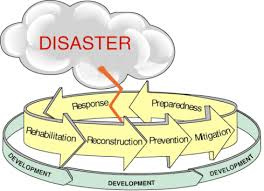
Event: Disasters and Development Course
Venue: Nairobi, Kenya
Event Date: 6th – 10th November 2017.
NITA CERTIFIED
VIEW OUR RECENT CLIENTS
INTRODUCTION
Disasters and development are linked closely in that disasters can both destroys development initiatives and create development opportunities and that development schemes can both increase and decrease vulnerability.
This course views responsibility in reducing disaster occurrence as a shared undertaking that goes far beyond improved disaster or emergency response. It gives explicit priority to assessing and building on household and community capabilities in at-risk communities, so that our vulnerability reduction efforts are sustainable. The course takes a developmental approach to the sustainable reduction of disaster risk, in both the individual country disaster management frameworks, as well as with respect to the priorities of the Hyogo Framework for Action.
DURATION
5 days.
WHO SHOULD ATTEND
Disaster managers, councilors / political leaders but is equally relevant to those concerned with all aspects of service delivery, business continuity, poverty reduction, humanitarian action and sustainable development.
COURSE OBJECTIVES
• Understanding the concept of disaster risk reduction
• Understanding of risk reduction themes
• Core concepts of adult education and development
TOPICS TO BE COVERED
MODULE 1: DISASTER RISK AND DISASTER RISK REDUCTION
• Prevailing global priorities and frameworks for policy, planning and developmental practice
• Legal obligations within municipal, provincial and national spheres in specific localities
• Participative, community-based social development that builds livelihoods resilience
MODULE 2: SPECIFIC RISK REDUCTION IMPLEMENTATION THEMES
• Drought, food insecurity, climate change and public health risks relevant to the changing world dynamics.
• Urban risk with a focus on informal settlement fires and floods.
• Extreme weather events in the context of climate change
MODULE 3: ADULT EDUCATION, TRAINING AND DEVELOPMENT
• Understanding the ETD context and the roles of ETD practitioners
• Community based approaches to reducing disaster risk.
MODULE 4: ROLE OF AGENCIES IN PROMOTING DEVELOPMENT AND DISASTERRISKREDUCTION
• Role of the United Nations
• Role of NGOs, and
• Role of the affected communities
How to participate
- Tailor Make A Course
- Register Individual
- Register Group
- Become One of Our Partners.
- Frequently Asked Questions (FAQs)
- View our Previous Clients
View related courses
• Establishing and strengthening farmer organizations Course
• Resilient Livelihoods Course
• Horticultural Production and Marketing Course
The most popular courses
• Introduction to Occupational Health and Safety
• Principles and Practice of Research Data Management and Collection
• Effective Project Proposal and Report Writing
For further inquiries, please contact us on Tel: +254 715 077 817, +254 (020) 211 3814, +254 731240802, +254 735331020.
Email [email protected]